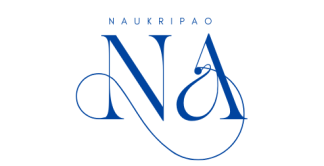
In the corporate world, your appearance speaks volumes before you even say a word. Business formal attire is the pinnacle of professional dressing, setting the standard for sophistication and competence in the workplace. Whether you’re attending a high-stakes meeting, representing your company at an industry event, or interviewing for a prestigious position, understanding the nuances of business formal attire is crucial for making a lasting impression.
Defining Business Formal Attire
Business formal attire is the most conservative and professional dress code in the corporate environment. It’s typically required in traditional industries such as finance, law, and government, as well as for important business events and formal occasions. This dress code is characterized by well-tailored, conservative clothing that exudes professionalism and attention to detail.
Key Characteristics of Business Formal Attire:
- Conservative and polished appearance
- High-quality, well-fitted garments
- Neutral color palette with minimal patterns
- Minimal and refined accessories
- Impeccable grooming
Business Formal Attire for Men
For men, business formal attire centers around the classic suit. The key is to choose high-quality, well-tailored pieces that create a polished and professional look.
The Suit
The cornerstone of men’s business formal attire is a well-fitted suit. Opt for:
- Dark colors: Charcoal, navy, or black
- Single-breasted jacket with two or three buttons
- Matching trousers with a crisp crease
- High-quality wool or wool blend fabric
The Shirt
Choose a crisp, long-sleeved dress shirt in white or light blue. Ensure that:
- The collar fits comfortably with enough room for one finger
- Cuffs extend about half an inch beyond the jacket sleeve
- The shirt is always neatly pressed and wrinkle-free
The Tie
A conservative tie is essential for business formal attire. Select:
- Silk ties in solid colors or subtle patterns
- The width should complement the lapel width of your jacket
- The tie should reach your belt buckle when tied
Footwear
Complete your look with:
- Well-polished leather dress shoes in black or dark brown
- Plain-toe or cap-toe oxfords are ideal
- Dark dress socks that match your trousers
Accessories
Keep accessories minimal and refined:
- A leather belt that matches your shoes
- Simple cufflinks and a classic watch
- Optional pocket square in a complementary color
Business Formal Attire for Women
Women have more flexibility in business formal attire, but the focus remains on conservative, professional pieces that convey competence and authority.
The Suit
A well-tailored suit is the foundation of women’s business formal attire. Choose:
- Skirtsuit or pantsuit in dark colors like navy, charcoal, or black
- Skirt length should be at or just above the knee
- The jacket should fit comfortably and button smoothly
The Blouse
Pair your suit with a conservative blouse:
- Opt for silk, cotton, or high-quality synthetic fabrics
- Choose white, cream, or light pastel colors
- Avoid low necklines, sheer fabrics, or overly embellished designs
Dresses
As an alternative to suits, formal dresses can be appropriate:
- Sheath dresses in dark, solid colors
- Knee-length or slightly below
- Pair with a matching blazer for added formality
Footwear
Select professional, comfortable shoes:
- Closed-toe pumps with a moderate heel (2-3 inches)
- Neutral colors like black, navy, or nude
- Well-maintained and polished
Accessories
Keep accessories subtle and professional:
- Simple pearl or stud earrings
- A delicate necklace or bracelet
- A structured leather handbag in a neutral color
Read What are Business Ethics
Business Formal Attire in Different Cultures
While the Western concept of business formal attire is widely accepted, it’s important to consider cultural variations, especially in international business settings.
Indo-Western Business Formal
In countries like India, business formal attire may include traditional elements:
- For women: Sarees in conservative colors and fabrics, paired with a formal blouse
- For men: A well-tailored Nehru suit or a Western-style suit with a Mandarin collar shirt
Middle Eastern Considerations
In Middle Eastern countries, formal business attire may require:
- For women: More conservative clothing with longer hemlines and sleeves
- For men: Traditional thobe or dishdasha in professional settings
Grooming and Personal Presentation
Business formal attire extends beyond clothing to encompass overall grooming and presentation.
For Men:
- Well-groomed facial hair or clean-shaven
- Neatly trimmed and styled hair
- Clean, manicured nails
For Women:
- Conservative makeup that enhances natural features
- Neatly styled hair pulled back if long
- Manicured nails in neutral colors
Common Mistakes to Avoid
When adhering to a formal business dress code, be mindful of these potential pitfalls:
- Ill-fitting clothing: Ensure all garments are properly tailored
- Wrinkled or stained clothing: Always present a clean, pressed appearance
- Flashy accessories: Avoid overly large or distracting jewelry
- Inappropriate footwear: No open-toed shoes, sneakers, or excessively high heels
- Strong fragrances: Use cologne or perfume sparingly, if at all
Business Formal vs. Other Dress Codes
It’s important to understand how formal business attire differs from other common dress codes.
Business Formal vs. Business Professional
While similar, business professional allows for slightly more flexibility:
- Business formal: Always requires a matching suit
- Business professional: This may allow for coordinated separates
Business Formal vs. Business Casual
Business casual is significantly more relaxed:
- Business formal: Full suits, conservative colors, formal shoes
- Business casual: Dress slacks, button-downs, optional ties, more color variety
Business Formal vs. Black Tie
While both are formal, they serve different purposes:
- Business formal: Daytime professional events, dark suits
- Black tie: Evening formal events, tuxedos for men, formal gowns for women
Adapting Business Formal Attire for Different Seasons
While the core elements of business formal attire remain consistent, subtle adjustments can be made for seasonal comfort.
Summer
- Lighter-weight wool or tropical wool suits
- Breathable cotton dress shirts
- For women, short-sleeved blouses may be acceptable in some settings
Winter
- Heavier-weight wool suits
- Consider adding a vest for extra warmth
- Dark, professional overcoats for outdoor wear
Building a Business Formal Wardrobe
Investing in a versatile business formal wardrobe allows you to always be prepared for important professional occasions.
Essential Pieces for Men:
- Two high-quality suits (navy and charcoal)
- Five white dress shirts
- Two light blue dress shirts
- Selection of conservative ties
- Black and brown dress shoes
- Professional overcoat
Essential Pieces for Women:
- Two suit sets (skirt and pants options)
- Five blouses in neutral colors
- One formal dress
- Two pairs of closed-toe heels
- Professional tote or briefcase
The Future of Business Formal Attire
While many industries are trending towards more casual dress codes, business formal attire remains relevant for high-level meetings, formal events, and conservative industries. However, subtle shifts are occurring:
- Increased acceptance of diversity in professional attire
- Growing emphasis on sustainable and ethically produced clothing
- Integration of technology, such as smart fabrics and wearable devices
Conclusion
Mastering business formal attire is an essential skill for any professional aiming to make a strong impression in the corporate world. By adhering to these guidelines and investing in high-quality, well-fitted pieces, you can ensure that your appearance always communicates competence, attention to detail, and respect for professional standards. Remember, in the world of business formal attire, less is often more – focus on classic, timeless pieces that allow your skills and expertise to take center stage.
